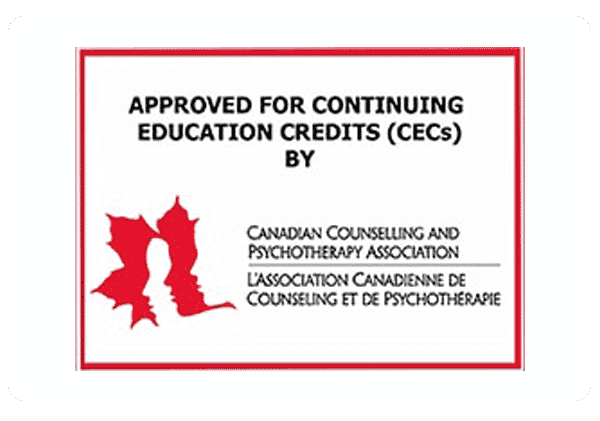The Discriminating Therapist: Enhancing Clients’ (Bad) Decision Making – Dr Michael Yapko
It is a basic truth that your decisions determine the quality of your life. Psychologists, especially cognitive psychologists and cognitive neuroscientists, use the term “discrimination” to describe the process of making distinctions between different situations that then give rise to one’s reactions. For example, your reaction will be entirely different if you believe someone stepped on your foot by accident than if you believe he or she did so deliberately. Your ability to discriminate an intentional act of harm from a moment of mere clumsiness helps shape your reaction of either anger or tolerance toward the person.
Cognitive psychology, the study of how people think, has given rise to new understandings about how people gather and use information. This includes how people decide, usually at a level outside of awareness, what is salient to pay attention to in a given environment and, likewise, what is essentially irrelevant. When people get sidetracked into irrelevancy, paying too much attention to what doesn’t really matter and too little attention to what does, their perceptions and responses naturally lead them astray. More important, when someone’s perspective is so global or over-general that he or she simply doesn’t know how or what to decide, he or she is far more likely to make poor decisions on the basis of hurt feelings, old history, misconceptions, or blind faith. There are many different ways of making key life decisions, and when one employs an ineffective one, the results can be enduringly painful. Read More
In this three-hour webinar based on Dr. Yapko’s book, The Discriminating Therapist: Asking “How” Questions, Making Distinctions, and Finding Direction in Therapy, we will look at people through the lens of cognitive style and HOW they make the choices they make. Instead of following the therapy tradition of analyzing why someone makes the choices they make, The Discriminating Therapist focuses on how people choose. We will especially focus on what they failed to either notice or discriminate in their global response to some circumstance. From this gentler and empowering perspective, we can help people make better decisions. The Discriminating Therapist provides an innovative and clearer approach to obtaining better and faster therapeutic results.
Some of the topics to be covered:
• Global cognition as a determinant of client symptom profiles
• How the therapist’s cognitive style shapes his or her treatments
• Shifting the focus of the clinical interview from “why” to “how”
• Content and process in assessment and treatment
• The interview as a builder of therapeutic momentum
• Defining the goals of treatment in process terms
• Which discriminations are the salient ones to focus upon
• Sequencing stages of treatment
• The vital nature of designing experiential treatments
TRAINING information
It is a basic truth that your decisions determine the quality of your life. Psychologists, especially cognitive psychologists and cognitive neuroscientists, use the term “discrimination” to describe the process of making distinctions between different situations that then give rise to one’s reactions. For example, your reaction will be entirely different if you believe someone stepped on your foot by accident than if you believe he or she did so deliberately. Your ability to discriminate an intentional act of harm from a moment of mere clumsiness helps shape your reaction of either anger or tolerance toward the person.
Cognitive psychology, the study of how people think, has given rise to new understandings about how people gather and use information. This includes how people decide, usually at a level outside of awareness, what is salient to pay attention to in a given environment and, likewise, what is essentially irrelevant. When people get sidetracked into irrelevancy, paying too much attention to what doesn’t really matter and too little attention to what does, their perceptions and responses naturally lead them astray. More important, when someone’s perspective is so global or over-general that he or she simply doesn’t know how or what to decide, he or she is far more likely to make poor decisions on the basis of hurt feelings, old history, misconceptions, or blind faith. There are many different ways of making key life decisions, and when one employs an ineffective one, the results can be enduringly painful. Read More
In this three-hour webinar based on Dr. Yapko’s book, The Discriminating Therapist: Asking “How” Questions, Making Distinctions, and Finding Direction in Therapy, we will look at people through the lens of cognitive style and HOW they make the choices they make. Instead of following the therapy tradition of analyzing why someone makes the choices they make, The Discriminating Therapist focuses on how people choose. We will especially focus on what they failed to either notice or discriminate in their global response to some circumstance. From this gentler and empowering perspective, we can help people make better decisions. The Discriminating Therapist provides an innovative and clearer approach to obtaining better and faster therapeutic results.
Some of the topics to be covered:
• Global cognition as a determinant of client symptom profiles
• How the therapist’s cognitive style shapes his or her treatments
• Shifting the focus of the clinical interview from “why” to “how”
• Content and process in assessment and treatment
• The interview as a builder of therapeutic momentum
• Defining the goals of treatment in process terms
• Which discriminations are the salient ones to focus upon
• Sequencing stages of treatment
• The vital nature of designing experiential treatments
Learning Objectives
Attend The Discriminating Therapist and learn to:
- Recognize cognitive style and its effect on experience in general and symptomatic experience in particular
- Ask “how” questions that identify the client’s experiential deficits (i.e., missing or incorrect information that work against his or her effective decision-making)
- Recognize how a therapist’s cognitive style may hinder treatment results
- Motivate the client to make key distinctions that regulate decision-making related to his or her presenting problems and beyond
- Identify and articulate discrimination criteria that help teach discrimination strategies
About the Speaker

CPD/CE
CPD / CE / NBCC credits available: 3
How do I receive these credits?
The participant must pass the multiple-choice test with a minimum score of 80%. There is a maximum of three attempts to achieve this.
The post-test is included in the price of the training.
Does my regulatory body accept the credits?
The CPD & CE credits awarded can be used towards your declaration to any governing regulatory body in your state or country, provided the content is relevant to your discipline.
Our trainings are accredited by:
– The CPD Group, London
– Canadian Counselling and Psychotherapy Association
– Australian Counselling Association
– National Board of Certified Counselors (NBCC)







